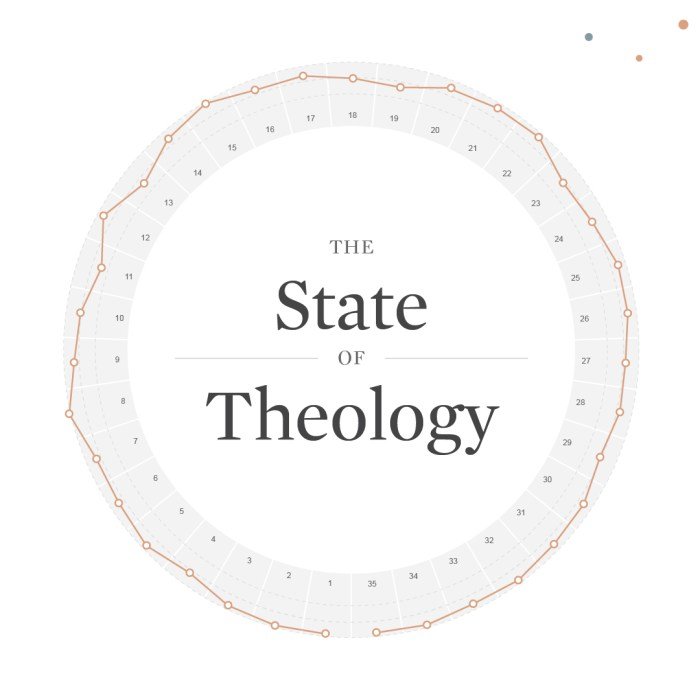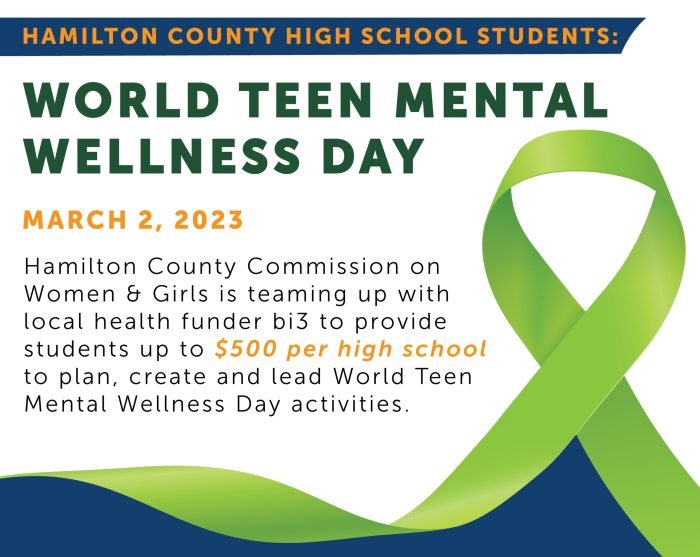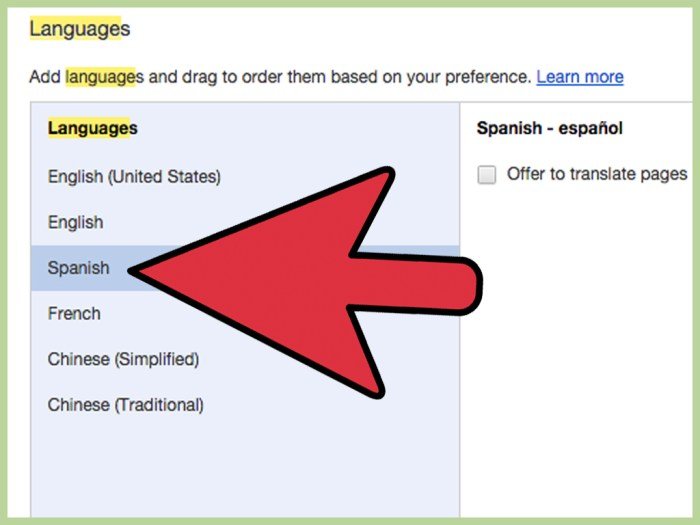Mental health songs, a powerful force in the realm of well-being, delve into the depths of human emotion, offering solace, understanding, and a sense of community to those navigating the complexities of mental health. From soothing melodies that calm the mind to lyrics that resonate with personal experiences, music has the remarkable ability to connect with our inner selves, providing a therapeutic escape from the pressures of daily life.
This exploration delves into the profound impact of music on mental health, examining how songs can address anxieties, depression, and trauma, offering a sense of hope and resilience. We’ll explore the therapeutic benefits of music therapy, the role of lyrics in storytelling, and the ways music can be integrated into self-care routines for a more balanced and fulfilling life.
The Power of Music in Mental Health

Music has been an integral part of human culture for centuries, serving as a powerful tool for expression, connection, and healing. Its therapeutic effects on mental well-being are increasingly recognized, offering a non-invasive and accessible way to manage various mental health challenges.
Music’s Therapeutic Effects on Mental Well-being
Music can profoundly impact our emotional state and cognitive function. Its ability to evoke strong emotions, regulate mood, and enhance focus makes it a valuable tool in promoting mental health.
Music for Stress Reduction
Music can be a powerful antidote to stress. Studies have shown that listening to calming music can lower cortisol levels, the stress hormone, and reduce feelings of anxiety.
“Listening to relaxing music can help to slow down the heart rate, lower blood pressure, and reduce muscle tension.”
- Classical Music:The gentle melodies and harmonies of classical music, particularly Baroque and Renaissance periods, have a soothing effect on the nervous system.
- Nature Sounds:The sounds of rain, wind, or waves can create a sense of tranquility and relaxation, allowing the mind to unwind and de-stress.
- Ambient Music:This genre, characterized by its slow tempos, minimal melodies, and atmospheric textures, can create a calming and introspective environment.
Music for Anxiety Relief
Music can help manage anxiety by distracting from negative thoughts and promoting relaxation.
- Upbeat Music:Music with a faster tempo and positive lyrics can help to lift mood and reduce feelings of anxiety.
- Meditation Music:Specific types of music designed for meditation, often featuring binaural beats or nature sounds, can help induce a state of deep relaxation and reduce anxiety.
Music for Depression Management
Music can be a powerful tool in managing depression. It can help to regulate mood, boost motivation, and provide a sense of comfort and connection.
- Uplifting Music:Music with positive lyrics and a hopeful tone can help to lift spirits and provide a sense of optimism.
- Music Therapy:Music therapists use music to help individuals express their emotions, improve communication skills, and cope with depression.
Songs that Address Mental Health Issues
Music has always been a powerful tool for expressing emotions and experiences, and in recent years, there has been a growing trend of artists using their platform to address mental health issues. These songs offer a unique perspective on mental health challenges, providing listeners with a sense of validation, support, and understanding.
Songs that Explore Anxiety
Many songs explore the overwhelming feelings of anxiety, capturing the physical and emotional turmoil associated with this mental health condition. These songs often use vivid imagery and metaphors to describe the experience of anxiety, making it relatable for listeners who may be struggling with similar feelings.
- “Anxiety” by The Chainsmokers ft. Rozes: This song explores the crippling effects of anxiety, using lyrics like “I’m scared to go to sleep, ’cause I might not wake up,” and “I’m afraid of the dark, ’cause I might not see the light.” These lines capture the constant fear and worry that can accompany anxiety, making it relatable for those who have experienced similar feelings.
- “The Village” by Wrabel: This song speaks to the isolating nature of anxiety, using lyrics like “I’m trapped in my own head, I can’t get out,” and “I’m lost in the maze of my mind, I can’t find my way.” These lines capture the feeling of being overwhelmed and trapped by anxiety, highlighting the difficulty of seeking help and connecting with others.
The Impact of Lyrics and Storytelling
Music, with its ability to tap into our emotions and experiences, holds a unique power to connect with individuals struggling with mental health. Lyrics, the words that weave the tapestry of a song, serve as a powerful medium for conveying emotions, experiences, and perspectives related to mental health.
Storytelling in music, the narrative thread that runs through a song, allows individuals to resonate with shared struggles and find solace in knowing they are not alone.
The Impact of Lyrics on Emotions and Perspectives
Song lyrics can evoke a wide range of emotions, from sadness and despair to hope and resilience. By using evocative language, metaphors, and imagery, songwriters can create a powerful emotional impact on listeners. For example, the lyrics “I’m not okay, I’m not okay, I’m not okay” from the song “Not Okay” by Demi Lovato capture the raw vulnerability and emotional turmoil associated with mental health struggles.
These lyrics resonate with individuals who have experienced similar feelings of despair and isolation, offering a sense of validation and understanding.
- Lyrics can provide a voice to those who struggle to express their emotions. When individuals feel unable to articulate their mental health experiences, music can provide a powerful outlet for emotional expression.
- Lyrics can challenge stigma and misconceptions surrounding mental health. Songs that address mental health issues can help to break down barriers and foster empathy and understanding.
- Lyrics can offer hope and inspiration to those struggling with mental health challenges. Songs that focus on resilience, recovery, and the power of human connection can provide a sense of hope and motivation.
The Power of Storytelling in Music
Storytelling in music allows individuals to connect with shared experiences and find solace in knowing they are not alone in their struggles. Music can create a sense of community and belonging, particularly for individuals who may feel isolated or marginalized due to their mental health experiences.
The narrative thread that runs through a song can provide a framework for understanding and relating to the emotional journey of the artist and other listeners.
- Music can offer a safe space for exploring difficult emotions and experiences. By listening to songs that address mental health issues, individuals can process their own emotions and find solace in knowing they are not alone.
- Music can provide a sense of validation and acceptance. Hearing stories of others who have struggled with mental health challenges can help individuals to feel less alone and more accepted.
- Music can offer a sense of hope and inspiration. Songs that tell stories of resilience and recovery can provide a sense of hope and motivation for individuals struggling with mental health challenges.
Music Therapy and Mental Health

Music therapy is a clinically recognized healthcare profession that utilizes music interventions to address physical, emotional, cognitive, and social needs. It is a structured, evidence-based practice that uses music as a tool to improve mental and physical well-being.
A mental health song can be a powerful tool for raising awareness and sparking conversation about important issues. It’s inspiring to see how music can connect with people on such a deep level, and it’s even more rewarding when it leads to positive action.
If you’re interested in a career that combines your passion for helping others with your organizational skills, you might want to consider careers in health information management. These professionals play a vital role in ensuring accurate and accessible medical records, which is crucial for providing quality healthcare, including mental health services.
The Role of Music Therapy in Treating Mental Health Conditions
Music therapy is a versatile tool that can be employed to treat a wide range of mental health conditions. Music therapists use a variety of techniques, including listening to music, playing instruments, singing, songwriting, and improvisation, to achieve therapeutic goals.
Music therapy is particularly beneficial for individuals with anxiety, depression, and PTSD. Music can have a calming effect on the nervous system, reducing anxiety and stress levels. It can also be used to help individuals express their emotions and cope with difficult experiences.
Examples of Music Therapy Techniques
Music therapists utilize a variety of techniques tailored to the individual’s needs and goals.
Active Music Making
Active music making involves engaging in music-related activities such as playing instruments, singing, or songwriting. These activities can promote self-expression, creativity, and emotional regulation.
Music Listening
Listening to music can have a profound impact on mood and emotional state. Therapists may use specific music selections to evoke desired emotions, reduce anxiety, or promote relaxation.
Improvisation
Improvisational music making allows individuals to express themselves freely and spontaneously, fostering creativity and emotional processing.
Benefits of Music Therapy for Specific Diagnoses
Anxiety
Music therapy can be effective in managing anxiety symptoms by reducing physiological arousal, promoting relaxation, and enhancing coping skills.
Music can be used to create a calming and soothing environment, helping individuals manage their anxiety and stress levels.
Depression
Music therapy can help individuals with depression by boosting mood, increasing motivation, and promoting emotional expression.
Music can be used to evoke positive emotions, encourage self-reflection, and provide a sense of hope.
PTSD
Music therapy can be used to help individuals with PTSD process traumatic experiences, regulate emotions, and reduce symptoms such as flashbacks, nightmares, and hypervigilance.
Music can be used to create a safe and supportive environment for individuals to explore their traumatic memories and develop coping mechanisms.
The Role of Music in Self-Care

Music has a profound impact on our emotions and well-being, making it a powerful tool for self-care. By incorporating music into our daily routines, we can cultivate a sense of calm, focus, and positive energy.
Music as a Relaxation Technique
Music can be a soothing balm for the mind and body, effectively reducing stress and anxiety. Listening to calming melodies or nature sounds can induce a state of relaxation, allowing us to unwind after a long day.
Music for Mindfulness and Focus
Certain types of music can enhance mindfulness and focus, helping us to be more present and attentive. Instrumental music, particularly classical or ambient music, can create a tranquil atmosphere conducive to meditation or deep concentration.
Music for Positive Emotions
Music can be a powerful tool for boosting mood and promoting positive emotions. Upbeat and energetic music can energize us and inspire a sense of joy, while soulful melodies can evoke feelings of love and connection.
Creating Personalized Playlists
The key to using music effectively for self-care is to create playlists that resonate with our individual needs and preferences. Experiment with different genres, tempos, and artists to discover what works best for you.
Recommended Playlists and Artists, Mental health song
- For relaxation: Ambient music, nature sounds, classical music (e.g., Bach, Mozart, Debussy)
- For mindfulness and focus: Instrumental music, binaural beats, nature sounds (e.g., rain, ocean waves)
- For positive emotions: Upbeat pop music, inspiring indie music, soulful R&B (e.g., Coldplay, Florence + the Machine, Adele)
The Importance of Personal Preference
Ultimately, the most effective music for self-care is the music that resonates with you on a personal level. Trust your instincts and choose music that makes you feel good. Experiment with different styles and artists to find what works best for you.
Music as a Tool for Connection and Support

Music has an extraordinary ability to connect people on a profound level, especially those who share similar experiences, including mental health challenges. The power of music lies in its capacity to transcend language barriers, fostering a sense of community and understanding among individuals who might otherwise feel isolated or misunderstood.
Shared Experiences Through Music
Sharing music can create a powerful sense of connection among individuals with mental health experiences. When people listen to or create music that resonates with their emotions, it can feel like they are not alone in their struggles. Music provides a common ground for individuals to express their feelings, share their stories, and find solace in knowing that others understand.
- Online Communities:Online platforms dedicated to music and mental health, such as forums, social media groups, and streaming services, provide spaces for individuals to connect and share their experiences through music. For example, the online community “Music for Mental Health” provides a platform for individuals to share their music, stories, and support each other.
- Live Performances:Attending concerts or live music events can create a powerful sense of belonging and shared experience. The energy and collective emotion of a live performance can be deeply therapeutic for individuals with mental health challenges.
- Music Therapy:Music therapy is a recognized therapeutic approach that uses music to address a wide range of mental health issues. Music therapists use music to facilitate emotional expression, improve communication, and promote relaxation and well-being.
Music and Empathy
Music can play a crucial role in promoting empathy and compassion for those struggling with mental health issues. When people listen to music that reflects the experiences of mental illness, it can help them develop a deeper understanding of the challenges faced by others.
Music can also provide a safe and non-judgmental space for individuals to explore their own emotions and connect with their own vulnerabilities.
“Music can be a powerful tool for building empathy and understanding. It can help us connect with others on a deeper level and see the world through their eyes.”Dr. Michael Thaut, music therapist and researcher.
The Evolution of Mental Health Representation in Music

Music has always served as a powerful medium for expressing emotions, including those related to mental health. The way mental health issues are portrayed in music has evolved significantly over time, reflecting changing societal attitudes and understanding.
Early Representations of Mental Health in Music
The earliest representations of mental health in music often focused on themes of sadness, despair, and loss. For example, blues music, which emerged in the early 20th century, frequently addressed themes of heartbreak, loneliness, and hardship, which could be interpreted as reflections of emotional distress.
Folk music, with its emphasis on storytelling and personal experiences, also often included narratives of individuals struggling with emotional challenges.
The Rise of Mental Health Awareness in Music
The 1960s and 1970s saw a growing awareness of mental health issues in society, partly fueled by the rise of the counterculture movement. This shift was reflected in music, with artists like Janis Joplin, Jimi Hendrix, and Jim Morrison openly addressing themes of addiction, depression, and anxiety in their lyrics.
The emergence of rock and roll also contributed to the destigmatization of mental health by portraying raw and emotional experiences through music.
A mental health song can be a powerful tool for processing emotions and finding solace. If you’re seeking support and resources for your mental well-being, the Hudson Comprehensive Health Center offers a range of services and programs designed to help individuals navigate mental health challenges.
Music can be a powerful complement to professional care, providing a personal outlet for expression and healing.
Contemporary Music and Mental Health
Contemporary music continues to play a crucial role in raising awareness about mental health. Today, artists are increasingly open about their own mental health struggles, using their platform to destigmatize these issues and encourage open conversations. This trend is evident in the rise of popular songs that address themes of depression, anxiety, and suicide.
The popularity of these songs demonstrates the growing acceptance of mental health as a legitimate topic for discussion and expression.
Impact of Changing Societal Attitudes
The evolution of mental health representation in music is inextricably linked to the changing societal attitudes towards mental health. As society has become more open and understanding of mental health issues, music has reflected this shift by portraying these topics with greater sensitivity and authenticity.
The increased visibility of mental health in music has helped to reduce stigma and encourage people to seek help when they need it.
A good mental health song can be a powerful tool for self-care, offering a moment of solace and connection. If you’re looking for a place to get active and boost your mood, check out Crunch Fitness Keystone , where you can find a variety of fitness classes and equipment to help you stay motivated and healthy.
And remember, exercise is a great way to improve your mental well-being, so why not combine your workout with a good mental health song for an extra boost?
The Power of Music in Healing and Recovery: Mental Health Song

Music’s ability to evoke emotions and create a sense of connection makes it a powerful tool for promoting healing and recovery. It can be a source of comfort, solace, and inspiration for individuals facing mental health challenges.
The Impact of Music on the Brain
Music engages multiple areas of the brain, including those involved in emotion, memory, and reward. This multifaceted engagement can trigger positive physiological and psychological responses. For instance, listening to calming music can reduce stress hormones like cortisol, while upbeat music can boost mood and energy levels.
Music as a Tool for Self-Expression and Emotional Regulation
Music provides a non-verbal avenue for individuals to express their emotions and feelings. It can be a cathartic outlet for processing difficult experiences, helping individuals to cope with stress, anxiety, and depression. By engaging in musical activities like singing, playing an instrument, or songwriting, individuals can channel their emotions into creative expression, fostering self-awareness and emotional regulation.
Examples of Music’s Healing Power
- Music therapy is increasingly recognized as an effective treatment for a range of mental health conditions, including anxiety, depression, and trauma. Music therapists use a variety of musical techniques to help individuals develop coping mechanisms, improve communication, and enhance their overall well-being.
- Studies have shown that listening to music can reduce pain and anxiety in patients undergoing medical procedures. Music can also improve sleep quality and reduce insomnia symptoms, contributing to overall recovery and well-being.
- For individuals struggling with addiction, music can provide a sense of hope and support during recovery. It can be a source of strength and motivation, helping individuals to stay on track and overcome cravings.
Final Thoughts

As we navigate the complexities of mental health, music emerges as a powerful ally, providing a sanctuary for healing, connection, and self-discovery. From the soothing melodies that calm our minds to the lyrics that speak to our deepest emotions, music transcends language, offering a universal language of empathy and understanding.
By embracing the transformative power of music, we can cultivate a deeper sense of well-being, foster connections, and find strength in the shared experience of human vulnerability.
Answers to Common Questions
What are some examples of mental health songs?
There are many songs that address mental health issues. Some examples include “Someone Like You” by Adele, “Not Afraid” by Eminem, and “The Scientist” by Coldplay. These songs explore themes of heartbreak, anxiety, and self-doubt, offering relatable experiences and emotional catharsis for listeners.
How can I use music for self-care?
Creating playlists for different moods and activities can be a great way to use music for self-care. For relaxation, try calming instrumental music or nature sounds. For motivation, choose upbeat and energetic songs. Experiment with different genres and artists to find what works best for you.
What are the benefits of music therapy?
Music therapy is a proven therapeutic approach that uses music to address various mental and physical health concerns. It can help reduce stress and anxiety, improve mood, enhance communication skills, and promote relaxation and self-expression. Music therapy is often used to treat conditions like anxiety, depression, autism, and dementia.